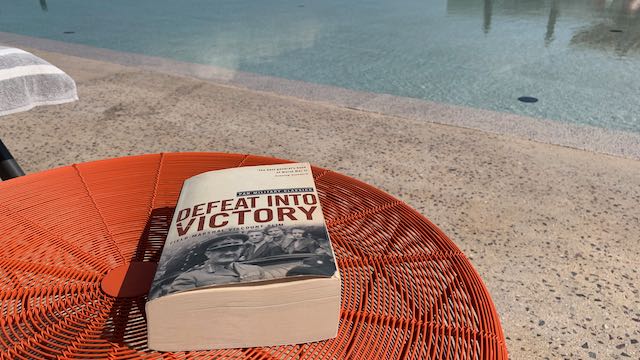Defeat into Victory - lessons on morale
Lessons for new leaders - and old - on morale from an expert

My holiday reading this summer included the military classic Defeat into victory by Field Marshal Viscount William Slim. Slim was the commander of the British Fourteenth Army, in Burma, known as the ‘forgotten army’. He fought in two world wars and had a distinguished career, including service as Chief of the Imperial General Staff and Governor-General of Australia. Between the wars he also found time to write novels and short stories.
Defeat into Victory is a gripping read for many reasons. Slim describes how he took over Burma Corps just as it was being pressed hard by the Japanese, forcing it to withdraw from Burma into India. He gives an account of how he subsequently prepared soldiers for battle in the jungle while improving their conditions. Fourteenth Army was basically a conglomerate of soldiers from different countries and ethnicities which had to be transformed into an effective fighting force. Defeat into Victory is an honest account of the ups and downs and the decisions that went well, and those that did not. Its style is disarmingly modest, despite the high stakes and occasional clashes with colleagues.
Slim outlines what he believes to be the essential components of morale.
Spiritual
There must be a great and noble object, the achievement of which must be vital. The method of achievement should be active, aggressive. Each person should feel that what they are and do matters directly towards the attainment of that object.
Intellectual
Each person must be convinced the object can be attained and is not out of reach. The organisation to which they belong and which is striving to attain the object is efficient. Each person must have confidence in their leaders and know that whatever dangers and hardships they are asked to suffer, their life will not be lightly flung away.
Material
Each person must feel they will get a fair deal from commanders and the army generally. They must be given the best weapons and equipment for the task as far as is humanly possible. Living and working conditions must be as good as possible.
The spiritual component is not necessarily religious, although a faith helps, but it is about values. These Slim and his officers communicated in person at every level and including to support staff with impromptu stump speeches etc.
The intellectual component was promoted by communication of success and by practice: patrols into the were organised to give practical experience and overcome fears of operating in the jungle. Small operations against enemy positions, at first using overwhelming force, were organised to give experience of success and build confidence. Slim also ensured his soldiers were informed about what was happening as much as security would allow.
The material component was achieved through steady good organisation to improve rations and living conditions. Slim also pushed hard on treatment for the wounded and for ensuring everyone took their anti-malarial drugs. It was made clear to officers that the responsibility was theirs.
It is popular to draw management principles from military lessons, so one hesitates a little before doing so here (it's been done already with this book). In particular, Slim was commanding an army in which, ultimately, people had to obey orders and they were fighting a war in which they killed people and were killed, often at close quarters. The book reflects another age, when people who are friends and allies now fought a bitter war.
However, some key points do seem applicable.
-
The driving purpose should be clear, ethical, and valuable, and actively pursued rather than being some passive value statement. The harder and more dangerous the role of course, the greater and more noble should be the object.
-
Achieving the object should be thought through and realistic. The organisation should be designed to attain that object, focused on doing so, efficient, and led by capable leaders who value the people they lead.
-
The basics are important. People need to be well treated and equipped, and the organisation run well.
Those are good principles for leading any organisation. As long as its leaders do not believe themselves to be generals commanding an army. Unless, of course, they are.